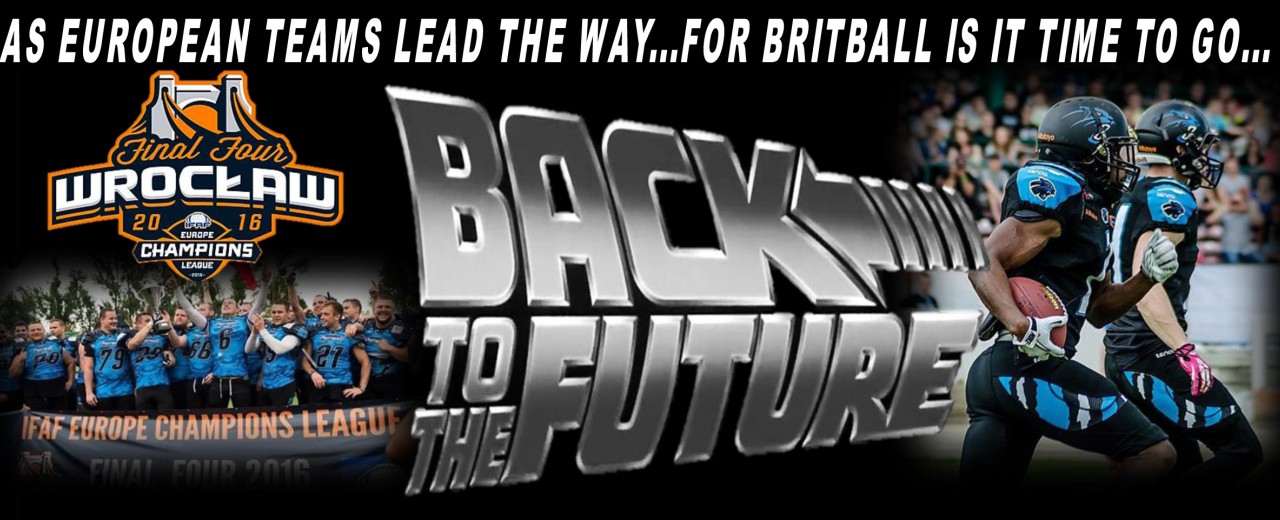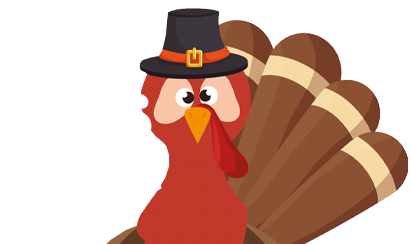Britball…Back To The Future

American Football in continental Europe is doing all right, thank you very much. With over 500 competitive teams, spread across 32 national federations, it is a hotbed of Footballing activity. The most established leagues tend to be in the countries that started playing in the early eighties, Germany, Italy, Austria , Finland and France, although Poland now have an extensive footprint. These countries have effective, well-organised administrations that oversee semi-professional leagues. American imports play alongside the cream of European talent (including numerous brits), providing great entertainment for fans who attend the games in their hundreds, and for the bigger programmes, thousands. Most teams have individual sponsors and the leagues have corporate sponsors. TV covers the big games, giving the sport even greater exposure.

You will probably be aware that there is a European national Championship competition (the GB Lions were recently successful in a “Group B” qualifying tournament) that holds its Finals, after a somewhat protracted (four year) qualifying phase. The next Finals Tournament is to be hosted by Germany in 2018. There is also a “Champions League” tournament for the top club sides. In July 2016, this was won by Poland’s Wroclaw Panthers, who beat the Milan Seamen of Italy by a score of 40 to 37 in the final. The game MVP award went to the Panthers American quarterback, Steven White, who threw three touchdown passes and also scored on a 43 yard run. His fellow American, running back Rickey Stevens ran for further scores.
A recent poll ranking the top twenty club sides in Europe named Germany’s Braunschweig New Yorker Lions as the continents number one outfit, with Austria’s Swarco Raiders in second place, with another German programme, the Schwabisch Hall Unicorns securing the third spot. British champions, the London Warriors, were ranked nineteenth.

Competitive Football at this level, has not been seen in Britain since the late eighties and early nineties. At that time, teams were allowed to have a limited number of “import players”. Ordinarily a quarterback, linebacker and perhaps a receiver who could also play defensive back. The League was at one time sponsored by Budweiser, and subsequently Coca-Cola, with all teams getting a level of financial support. Playing with, and being coached by, top American talent, led to the home-grown players operating at a higher level. Games provided great entertainment and were well attended, sometimes in the thousands (the London Ravens v Manchester All-Stars national final in 1987 drew a crowd of 13,500 to Queens Park Rangers’ Loftus Road ground). Both the GB national team, and club sides, did well in the various European competitions, with wins for the GB Lions in 1988 and 89. The Manchester Spartans were European club Champions in 1990, but the London Olympians were the last British club to win the “Eurobowl” club championship, taking the title in both 1993 and 1994.
In the mid-nineties, when the then top level of competition in Britain, the National Division Managers Association league ceased to exist, a new administration came into place, and it was decided that an “Amateur Stance” similar to the NCAA college structure should be adopted. That meant of course, that nobody could be paid to play or coach and the imports disappeared from the British game, swiftly followed by most of the spectators and sponsors.
Within Britball there are some who are simply happy to pull on the kit, and keep that bench warm, either literally or metaphorically. Not for them, is the intense competitive nature of the physical contest, nor the desire to improve and match yourself against the best. However, I would venture, that there are a sizeable percentage of those involved in Britain, who would relish the opportunity to play alongside talented import players, in front of crowds of spectators in an effort to further their sport.
I feel we are currently at another crossroads in the development of the game here. There have been several times before, where conflicts of interest, questions regarding financial matters, a lack of transparency and personal agendas and egos have led to changes in the administration and the structure of the game, not always for the greater good.
We are at a time when there are numerous elements in place that would suggest, it’s time for us to move forward. Greater interest from the general public in Football, more NFL games in London, an expanding University league providing a development arena for new players, easy access to equipment, and social media providing more ways to reach out to prospective players, fans and sponsors, yet we find ourselves trailing behind our European counterparts.
I would urge all stakeholders to come together to work to further the British game. That includes, players, coaches, referees, fans and the current governing body. Make your voices heard, let’s establish our priorities in a democratic way and work together to deliver them.
It just may be that we need to go back, to find the future.
The views expressed by the author in this article are not necessarily those shared by FAUK.



